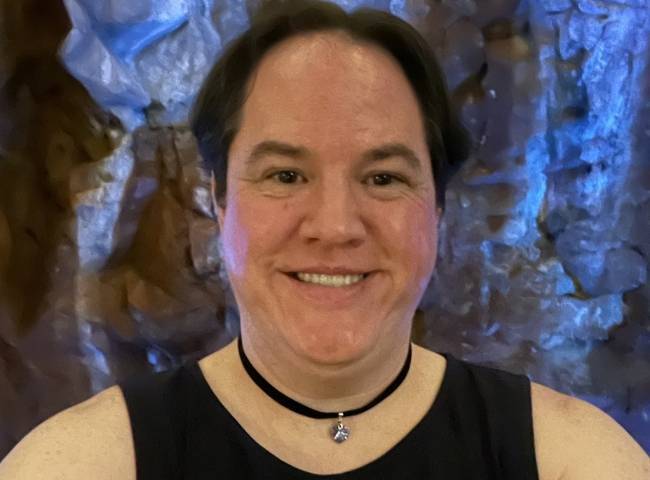Meet Christina

Christina's story
Electrolysis Support Fund recipient
Christina (she/her) is a nonbinary trans femme who has been unemployed for over four years, despite her continued efforts to find work. She applies for jobs as “nonbinary” when possible and strives to live every day as the woman she knows herself to be. Still, she often hears herself misgendered—called “sir” in public—which she believes may be partly due to her remaining facial hair.
“I hope having the remaining facial hair removed will help me to find work and pass as the woman I know I am meant to be,” she shares. Christina is also managing approximately $80,000 in credit card debt, and her spouse, a teacher, supports their household on a limited income—making it impossible to afford hair removal services.
Christina has tried waxing and shaving, but those solutions are temporary and often frustrating. Electrolysis would be a critical step in her gender-affirming journey, helping her feel more confident, safer in public, and better positioned to pursue employment and stability.
Christina's timeline
-
Award Granted
April 23, 2025
Christina was awarded a grant toward permanent hair removal!
About Hair Removal: Femme Award
On average, it costs $2,300+ for Christina's care.
- What is it?
- Before care
- After care
What is it?
Point of Pride provides grants to trans femme people seeking hair removal on their face, neck, or an area of the body in preparation for bottom surgery.
What is life like for a person who needs this care?
For trans femme folks, particularly trans femmes of color, access to facial hair removal often equates to safety against anti-trans violence or discrimination. It's common for applicants to note issues with employment and public safety, particularly if their facial hair is dark or thick. Electrolysis and laser hair removal services are often deemed cosmetic and therefore not covered by health insurance plans.
What is the impact of this care on the recipient’s life?
Access to hair removal often leads to a more positive emotional well-being, increased confidence, increased safety when in public, and better opportunities at employment and more.
Your support funds healthcare that's
life-changing. Life-saving. Life-giving.